How these entrepreneurs from Tier II and III towns built multi-crore businesses
SMBStory has curated a list of 10 business ventures and their owners who, despite hailing from smaller cities, created opportunities and built million-dollar businesses.
Indian businesses have, time and again, proving that it doesn’t matter where you come from, your desire to disrupt and advance is what will truly count.
SMBStory curated a list of 10 entrepreneurs and their companies who, despite hailing from smaller cities, created opportunities and built million-dollar businesses.
GB Sundararajan and B Soundararajan,

GB Sundararajan and B Soundararajan never received any formal college education. After graduating from school, in 1978, their father Bangarusamy suggested that Soundararajan start something of his own. Since the family already had 20 acres of ancestral agricultural land, Soundararajan decided to venture into vegetable farming instead of cotton, unlike the other farmers in the area. With some financial help from his family, he managed to run the business for three years, but eventually, it did not turn out to be profitable.
However, his dream to do something of his own had not diminished. And, it all changed in 1986.
In 1986, the brothers started Suguna Foods Private Limited in Coimbatore, as a small poultry trading company, wherein they supplied equipment, healthcare products related to poultry, feed, and chicks to other poultry companies. Three years into the trading business, they realised that many farmers were giving up farming because of the large credit gap in the market.
With a dearth of structured loans from banks, these farmers had to depend on private lenders. Also, they were unable to sustain themselves on an unstable income. This is when the idea to adopt contract farming struck the brothers. In this model, agricultural activities like production are carried out according to an agreement between the farmer and the industry buyer, cutting out the middleman.
Through this model, Suguna Foods is providing a stable income to over 40,000 farmers. Primarily known for its quality-grade chicken and related food products, it also operates about 66 feed mills across the country.
Over the years, Suguna Group has diversified into other categories, including dairy products (Suguna Dairy Products Pvt.. Ltd.), finance (Suguna FinCorp Pvt. Ltd.), and manufacturing and marketing vaccines for livestock, poultry, and fisheries industries (Globion India Pvt. Ltd.). However, a whopping 97 percent of the group’s total revenue comes from its poultry business, Suguna Foods. It also exports to countries like Kenya, Bangladesh, and Sri Lanka. It clocked a turnover of Rs 8,700 crore in FY20.
So, how did Suguna Foods, which started with a meagre Rs 5,000, scale to become a multi-crore poultry company in 34 years?
Read the full story here.
Hemant Jalan, Indigo Paints
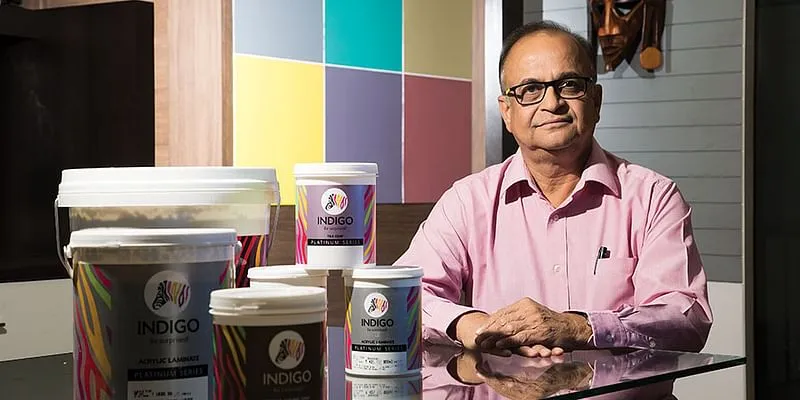
(image credit: Forbes India)
Chemical engineer Hemant Jalan’s early days as the founder of Indigo Paints were quite different from his life before entrepreneurship. While working with Vedanta’s Sterlite and heading its copper smelter unit in Tamil Nadu, Hemant used to take a private jet to business meetings. After starting his own business, he travelled between cities by two-tier AC train. Started in 2000 with Rs 1 lakh, Hemant’s company Indigo Paints had a modest beginning. In his words, the company was established with “practically no capital investment.”
A small chemical unit in Patna and an industrial shed in Jodhpur served as the foundation for the company in its early years.
“We started by making lower-end cement paints, and gradually expanded our range to cover most segments of water-based paints such as exterior emulsions, interior emulsions, distempers, primers, etc. We began spreading our footprint across the country and rapidly expanded our reach,” Hemant says.
Employing a customer-driven focus on innovation and an incentive-based approach to sales, Hemant has led Indigo to become one of India’s largest paint brands. In FY20, the Pune-headquartered business reported revenues of Rs 625 crore with a net profit of Rs 48 crore. At present, the company has three manufacturing facilities located in Rajasthan, Kerala, and Tamil Nadu. Indigo recently went public and listed on the NSE and BSE.
Read the full story here.
Dr Damodarasamy Naidu, Annapoorna Masalas
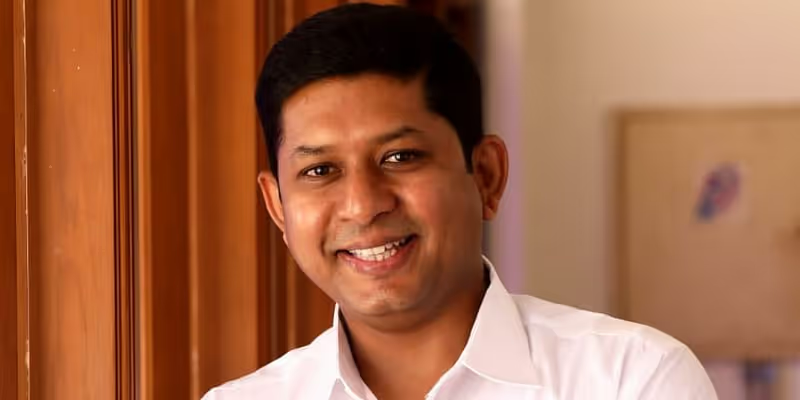
Coimbatore resident Dr Damodarasamy Naidu, in 1975, was running a small chain of hotels when he decided to venture into the spices business, aimed at supplying local spice mixes to them.
He established Annapoorna Masalas that sourced the spices locally, blended them in a small unit in Coimbatore, and sold to hotels in the region, following a B2B model. Both the businesses were doing well when his family member Velumani R took over the business in the mid-80s.
For 45 years, Annapoorna Masalas focussed on selling to hotels and local stores in western Tamil Nadu and did not yearn for expanding the brand out of the state. However, in 2019, the business took a different turn when Velumani’s son Vijay Prasad
Annapoorna Masalas has a total of 53 products and 101 SKUs. After rebranding, it launched about 12 national-regional blends, three biryani variants, and nine Tamil Nadu regional blends.
In FY 2019-20, the spice mix brand raked in annual revenue of Rs 35 crore. Vijay says the company is confident of closing FY 2020-21 with a turnover of Rs 42 crore, with a projection of Rs 200 crore in revenue in the next three years. Annapoorna Masalas is also available on ecommerce portals like Amazon, Bigbasket, Flipkart, and Paytm Mall.
Read the full story here.
Manoj Gyanchandani, Red Chief
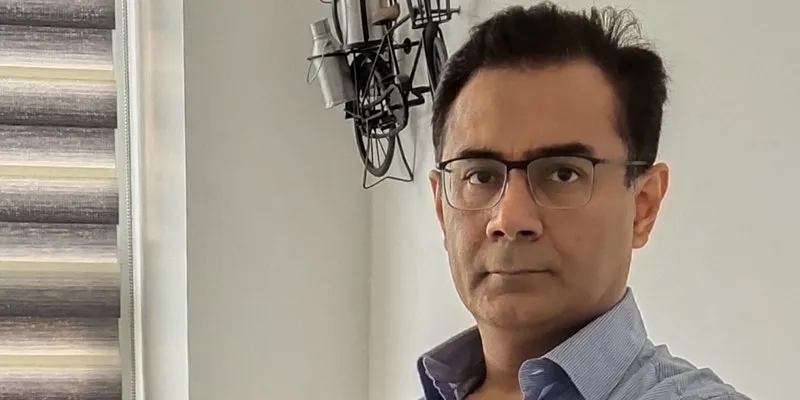
Manoj Gyanchandani started a leather shoe export business in his early 20s when he was also involved in his family’s business. In 1995, he set up Leayan Global Private Limited to export leather shoes to Europe. However, two years later, Manoj realised that the Indian footwear market isn’t organised in the leather shoe sector.
Wrapping up the export business, he studied the market and launched Red Chief brand under the parent company Leayan Global Private Limited in 1997. Initially, Manoj decided to set a firm foot in Kanpur.
He started by showcasing products in multi-branded outlets across the city. This continued till 2010 when Red Chief expanded to multi-branded outlets in other states.
In 2011, the entrepreneur launched the first exclusive Red Chief outlet in Kanpur. Today, Red Chief has 175 stores located across 16 states including Uttar Pradesh, Madhya Pradesh, Gujarat, Rajasthan, Maharashtra, and Chhattisgarh. It is also present in over 3,000 multi-brand outlets. According to the Registrar of Companies (RoC) filings, the company makes an annual turnover of over Rs 324 crore.
“Almost 80 percent of our products are manufactured in-house. We have a complete leather and footwear manufacturing with our own tannery, and three manufacturing plants across Kanpur, Haridwar, and other cities,” says Manoj.
Read the full story here.
Jai and Anuj Agarwal,

Jai Agarwal was running a family tobacco business in Lucknow when in 2005, his brother Anuj Agarwal decided to join him. However, with no possible avenues for disruption in the tobacco business, the brothers decided to explore new opportunities. “We were living in a semi-rural area.”
“A tobacco business doesn’t need too much hard work or infrastructure. Additionally, there was no professional or social growth there. We were these entitled kids living comfortably. When my brother realised there wasn’t much for him to contribute, we started brainstorming for new ideas,” Jai Agarwal tells SMBStory. For a few years, the brothers dabbled in real estate but nothing materialised. But an old real estate investment changed gears for them.
The brothers decided to renovate and reset a shutdown dairy unit bought a few years ago and launched Gyan Dairy in 2007. The Lucknow-headquartered company started manufacturing dairy products, including milk, curd, chaach (buttermilk), paneer (cottage cheese), and butter, among others.
At present, it manufactures and sells 27 dairy products across Uttar Pradesh. The Lucknow-based company recently onboarded actor Manoj Bajpai to promote the brand’s launch in Kanpur. The brand also operates exclusive retail outlets called Gyan Fresh Stores, spread across 53 locations in the northern state.
Last year, the dairy brand clocked a turnover of Rs 908 crore.
Read the full story here.
Sanjeev and Aditya Bafna,

Making the right moves in business spells the difference between success and failure. Sanjeev Bafna knows that well. A manufacturer and supplier of yarn in the 1980s, Sanjeev decided to exit the sector soon. “He realised manufacturing is a capital-intensive and capital-centric business,” says Sanjeev’s son, Aditya Bafna.
Instead, Sanjeev decided to take up dealerships of established automakers such as Maruti Suzuki and Honda. That’s how the Nashik-based Seva Group came into existence in 1987.
At present, the group has three units: Seva Automotive for Maruti Suzuki cars, Rushabh Honda for two-wheeler Honda vehicles, and Element Retail, a franchisee for top fitness and technology brands Apple, Speedo, Birkenstock, Asics, Jockey, and Giant Bicycles.
Seva Automotive, the group’s largest revenue generator, has 32 workshops and showrooms, including 13 dealerships of Maruti Suzuki four-wheelers and one for Honda two-wheelers, across eight locations in Maharashtra.
The unit also provides services such as insurance and financing for vehicles.
Element Retail has a dealership network of 150 across India for Giant Bicycles and 19 for Apple, Birkenstock, Jockey, and Speedo combined. It is present in Tier-II and III cities such as Raipur and Indore.
In FY20, the group clocked a turnover of Rs 800 crore.
Read the full story here.
Anuj Mundra, Jaipur Kurti

Between 2001 and 2003, Anuj Mundra was working in a saree showroom in Jaipur, earning Rs 1,400 every month. He soon realised that he couldn’t sustain himself with the income for too long. In 2003, he quit his job and started a business of trading suit pieces. He would purchase suit sets from vendors and further sell them to other vendors and shopkeepers. When he started earning some income, Anuj opened his own block and screen printing units in Jaipur itself.
This went on till 2012 when Anuj came to Delhi and saw huge hoardings of ecommerce marketplaces Jabong and Snapdeal.
He felt a moment of epiphany and realised that ecommerce is going to be the future of shopping in India. He came back to Jaipur and spoke to a Chartered Accountant (CA), enquiring about company regulations and compliances.
He launched Nandani Creation Pvt. Ltd. in 2012 and branded the ecommerce offshoot as Jaipurkurti.com. In the first year itself, the company clocked a turnover of Rs 59 lakh.
Today, the company manufactures and sells suits, kurtis, fusion wear, bottomwear and a host of other apparel items. The B2C company even exports to countries such as the UK, the US, Australia, Malaysia, and a few others. The average selling price for suits is Rs 900 and for kurtis, it is Rs 650.
In the last financial year, the business clocked a turnover of Rs 43.7 crore and moving forward, the company wants to become a Rs 100 crore business by 2023.
Read the full story here.
MP Ahammed, Malabar Gold
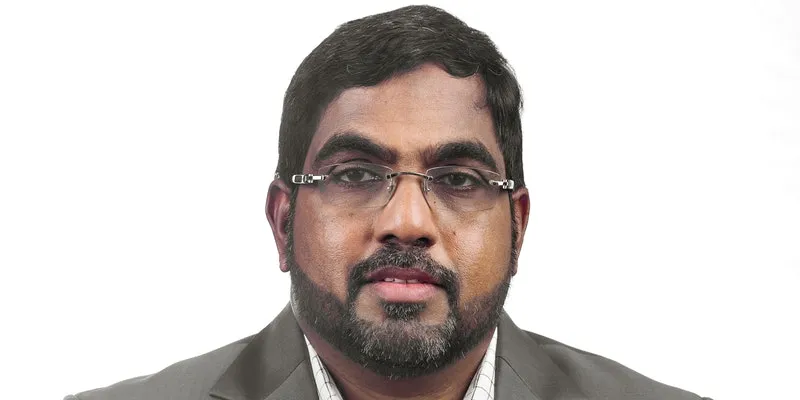
Born into a family of merchants and landlords, MP Ahammed began his entrepreneurial odyssey at the age of 20 by setting up a spice trade venture in 1979. He used to trade cardamom, pepper, and coconut to the retailers of Kozhikode (now Calicut) in Kerala. However, he soon realised that the trading business will not become big.
Ahammed thoroughly researched the market and realised that a major unorganised sector people boasted about was jewellery. And, that’s all it took. Gearing up all his courage, he decided to set up a business in the industry and promote his native place Malabar. However, he had no funds to take such a big step.
“I discussed the idea with my relatives and seven of them got aligned with the plan. However, the cash crunch problem laid with them too. To start the business, they disposed of the property and gathered Rs 50 lakh to invest in the business. Thus, becoming the first investors and founding pillars of Malabar Golds & Diamonds,” Ahammed tells SMBStory.
Thus, in 1993, the company started in a small 400 sq ft shop in Calicut. Ahammed started by purchasing gold bars and then getting the jewellery manufactured from goldsmiths.
They had a good start and customers were fascinated by the designs and collections. In a short time, Malabar Golds & Diamonds expanded to two more stores in other smaller towns of Kerala – Tirur and Tellicherry. Seeing that the business was running at a good pace, in 1995, Ahammed shut the old store and opened one that was 4,000 sqft.
What started in 1993 with seven investors now has 4,600. In the last financial year, Malabar Golds & Diamonds clocked Rs 27,000 crore turnover.
Read the full story here.
Dr Ajay Murdia, Indira IVF

L-R: Dr Kshitiz Murdia, Dr Ajay Murdia, and Dr Nitiz Murdia
In 1988, fertility specialist Dr Ajay Murdia started a fertility clinic with Rs 5,000 in his pocket in Udaipur, Rajasthan, to provide personalised assisted reproductive technology (ART) treatment, as well as to make people understand that men, too, are responsible for infertility, and should get tested along with women.
Around the same time, he opened one of India’s first sperm banks in Udaipur and trained doctors from across the country. As medical sciences advanced and newer technologies were adapted, Ajay’s two sons — Dr Kshitiz Murdia and Nitiz Murdia — brought these services under the Indira IVF banner.
Dr Kshitiz Murdia, CEO of Indira IVF, tells SMBStory, “When my father started a fertility clinic, he was not much welcomed by society. The issue of speaking about male infertility was a taboo. But things changed as he counselled and treated people, and, in turn, parents witnessed the positive results.”
Growing from just two fertility clinics in 2015 (Udaipur and Pune) to 93 centres in 2020, Indira IVF has a presence across India. Indira IVF uses various technologies like RI witness™ technology, closed working chambers technology, artificial intelligence (AI), and microfluidics, among others to help its patients.
At present, Indira IVF is among India’s leading IVF chains, clocking Rs 850 crore turnover.
Read the full story here.
OP Munjal, Hero Cycles
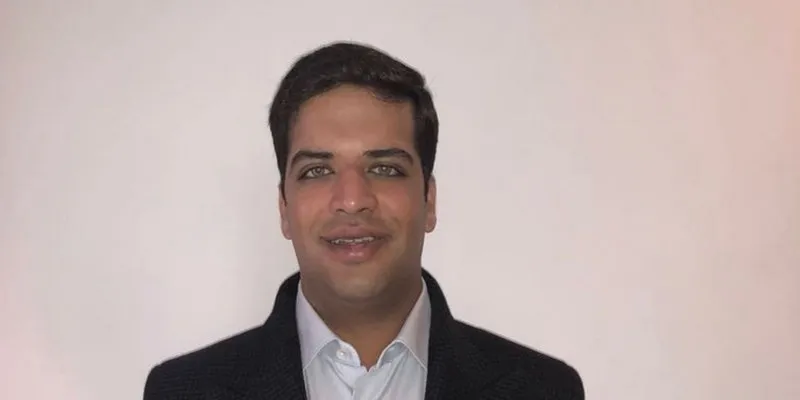
Abhishek Munjal, Director, Hero Cycles
The man who brought locally-manufactured cycles into the lives of countless Indian kids was the late OP Munjal, Founder of Hero Cycles.
Established in 1956 in Ludhiana, Hero Cycles was set up right after India’s independence. At this point, the nation was like a young child discovering its freedom. It was on the move and needed wheels. Munjal and Hero Cycles came in at the right time. The business started small, and under Munjal’s leadership, went on to become the largest single bicycle maker in the world.
At present, Hero Cycles manufactures over five million cycles per year. Its primary production unit in Ludhiana is fully-equipped with an in-house R&D facility, producing major bicycle components.
The company exports to over 70 countries, including Germany, Poland, Africa, and Finland, with an approximate network of over 250 suppliers and 2,800 dealerships. A part of the larger Hero Motors Company (HMC), the Rs 3,500 crore-plus company is a family business, now headed by its Chairman Pankaj M Munjal.
His son Abhishek Munjal (27), Director of Hero Cycles, is deeply involved in the company’s operations, vision and strategy, and runs things on the ground. The company was publicly listed in 1985.
Read the full story here.
Edited by Anju Narayanan










